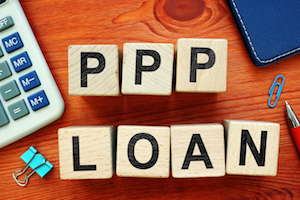 With an end-of-March deadline looming, a bipartisan group of lawmakers in the House of Representatives and U.S. Senate introduced legislation to further extend the program.
With an end-of-March deadline looming, a bipartisan group of lawmakers in the House of Representatives and U.S. Senate introduced legislation to further extend the program.
Introduced in the House by Reps. Carolyn Bourdeaux (D-GA), Young Kim (R-CA), Nydia Velázquez (D-NY), chair of the House Small Business Committee, and Blaine Luetkemeyer (R-MO), ranking Republican on the committee, the Paycheck Protection Program Extension Act of 2021 would extend the program an additional two months, so that it would not expire until the end of May. In addition, the bill would provide an additional 30 days for the U.S. Small Business Administration to process loans submitted prior to the new May 31 deadline.
Companion legislation was introduced in the Senate by Sen. Ben Cardin (D-MD), who chairs the Senate Small Business & Entrepreneurship Committee, along with Sens. Susan Collins (R-ME) and Jeanne Shaheen (D-NH).
The American Rescue Plan Act (ARPA) enacted March 11 provided an additional $7.25 billion for the PPP and expanded the eligibility to a larger group of nonprofit entities, as well as digital journalism entities. The ARPA also clarifies that COBRA payments are not to be included in PPP forgiveness calculations. But despite everything else that was included in ARPA, it did not extend the PPP beyond the existing March cut-off date that was provided as part of the year-end appropriations legislation.
The Consolidated Appropriations Act, 2021 enacted at the end of 2020 reopened and extended the PPP through March 31, and allocated another $284 billion for first- and second-round forgivable loans, including dedicated set-asides for small businesses and lending through community-based lenders, as well as expanding PPP eligibility for 501(c)(6) nonprofits.
Additionally, the Biden administration in a Feb. 22 announcement implemented a two-week period during which only businesses with fewer than 20 employees could apply for relief through the program.
But during a March 10 hearing by the House Small Business Committee, various witnesses testified about their struggles in communicating with the SBA and applying for a PPP loan. “There are significant operational problems within the PPP process that are resulting in urgent challenges and significant complexity for many small business borrowers who are trying to enter into the SBA system, and delays in processing once in the system,” testified Lisa Simpson, Vice President of Firm Services American Institute of CPAs. “An extension of the PPP application deadline for at least 60 days after March 31, 2021 will provide an opportunity for the SBA to address its technical issues, provide critical guidance, and work with lenders and borrowers so that small businesses can navigate the application process and receive a loan.”
“It’s clear that the most vulnerable small businesses will need help beyond March 31, so we must pass this extension as quickly as possible,” Sen. Cardin stated in a release announcing the introduction of the legislation. “This commonsense, bipartisan bill will meet the continued demand for PPP loans by giving small businesses two more months to apply, and giving SBA an additional month to process the loan applications by June 30.”
With the deadline looming, various reports suggest the legislation will be brought up in the House this coming week.
Since the PPP was enacted under the CARES Act in March 2020, more than 7.5 million loans have been approved totaling more than $687 billion. The latest data for 2021 shows that 2.4 million PPP loans have been approved totaling approximately $165 billion.

